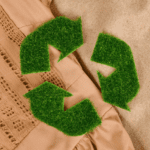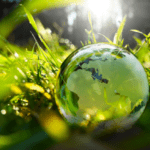Chemistry is the fundamental building block of all things; life and living are chemical reactions. Chemistry is therefore here to stay, but we must manage and understand how we use the chemical building blocks of our world to best protect it.
In the past, we have forged forward without fully understanding the impacts of the chemicals we use. We might cite case studies such as solvents, persistent pesticides and lead in paint, all used with the best intentions of improving performance, but at the time we did not fully understand their long-term impacts.
We are always learning about the long-term impacts of our use of chemicals as our knowledge and analytical capabilities increase. Most recently Europe announced the largest substance ban ever in Europe. This was a proposal submitted to the European Chemical Agency on the 13th January 2023 to limit the use of per-and polyfluoroalkyl substances (PFAS) by five European countries Denmark, Germany, the Netherlands, Norway and Sweden.
The collaboration proposed to limit the use of PFAS in the EU, after extensively studying PFAS, their uses, and the risks they pose to humans and the environment over the past three years.
PFAS are used in a range everyday products and give products water and dirt-repellent properties, among others. They are, therefore, used in many consumer products, for example for the impregnation of textiles, in food packaging, in non-slip coatings in frying pans, in coolants for refrigerators and air conditioners, in ski lubrication, electronic devices, and paints. PFAS are also used in industrial activities such as in chrome plating, as foam suppressors, and in fluorine-containing plastic materials.
PFAS are used frequently and are a problem because they are persistent in the environment. This means they never break down, entering our ecosystems and can be now found in most things like water, food, soil, textiles, cosmetics, detergents, paper, packaging etc.
To better manage chemicals such as PFAS, retailers, brands and their suppliers must fully understand the chemicals used in their products.
How Eurofins can help you manage chemistry in consumer products
Our team have pulled together a number of sustainable chemistry services to help our clients manage their product chemistry and materials chemistry. These include unique systems that enable us to manage the chemicals used up the supply chain at the point where the chemicals are made or used.
Upstream chemical management
The earlier chemistry is understood, measured and controlled, the better it is for the employees of a manufacturing plant and the environment where manufacturing takes place. The impacts of poor chemical selection and management can be transmitted through touch, inhalation and ingestion as well as exposure through water and contaminated land.
Our wide range of sustainable chemistry services to cater for your current and future needs.including
- Chem-STTM hazardous chemical smart testing and chemical risk management
- PFAS testing and control for consumer products
Contact us today to find out how Eurofins can help you towards becoming more sustainable.



